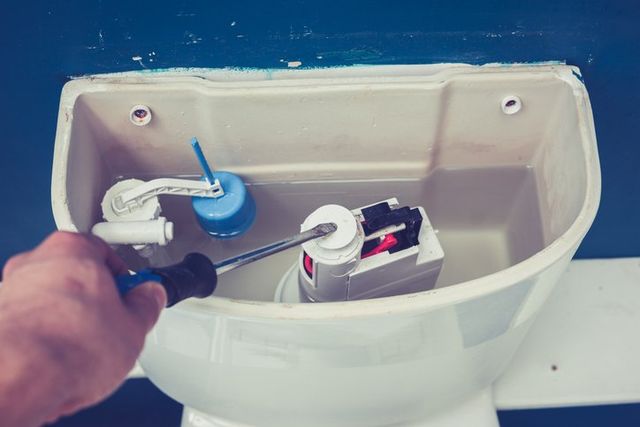Responding to the Everyday Heater Urgent Problems
Responding to the Everyday Heater Urgent Problems
Blog Article
What're your ideas about Warning Signs You Need Water Heater Repairs?

A hot water heater is one of one of the most vital basic devices that can be found in a house. With water heaters, you don't need to go through the stress and anxiety of home heating water by hand each time there is a demand to wash, do the laundry, or the dishes. There is constantly a possibility that your water heating system would act up as with most mechanical gadgets.
It is necessary to note any type of little breakdown and tackle it promptly before things leave hand. Most times, your hot water heater starts to malfunction when there is a build-up of debris as a result of continual usage. As a safety measure, periodic flushing of your hot water heater is suggested to prevent sediment build-up and also avoid functional failing.
Usual hot water heater emergencies and how to deal with them
Inadequate warm water
Taking care of a not enough supply of warm water can be irritating. It may be that the water heater can't sustain the warm water need for your home. To take care of this problem, you can try to adjust your heating unit's temperature level dial and also wait for a few mins. If the trouble lingers, you can ask for the assistance of a professional plumber. You could upgrade your water heating system to one with a larger capability.
Rising and fall water temperature.
Your water heating system can begin generating water of various temperature levels normally ice chilly or hot warm. There may be a demand to change either the home heating or the thermostat device of your water heating system.
Leaking hot water heater container.
A leaking container could be a sign of corrosion. It might create damage to the floor, wall as well as electric tools around it. You could even go to threat of having your house swamped. In this circumstance, you must shut off your hot water heater, allow it to cool down, as well as carefully search for the source of the trouble. Sometimes, all you require to do is to tighten a few screws or pipe links in cases of small leakages. If this does not function and the leak continues, you could require to utilize the solutions of a specialist for a suitable substitute.
Stained or odiferous water
When this happens, you need to know if the problem is from the water or the container resource. If there is no amusing odor when you run cool water, after that you are certain that it is your water heater that is damaged. The smelly water can be caused by corrosion or the buildup of germs or sediments in the water heater storage tank.
Verdict
Some house owners disregard little warning as well as minor faults in their hot water heater unit. This just leads to further damage as well as a possible total malfunction of your appliance. You must take care of your water heater mistakes as soon as they come up to stay clear of even more expenditures as well as unnecessary emergency troubles.
With water heating systems, you don't require to go via the anxiety of home heating water by hand every time there is a need to take a bathroom, do the laundry, or the meals. It might be that the water heater can't sustain the warm water demand for your apartment. Your water heater could begin generating water of various temperature levels generally ice scalding or chilly hot. If there is no funny odor when you run cool water, then you are certain that it is your water heater that is faulty. The odiferous water can be created by corrosion or the accumulation of germs or sediments in the water heater storage tank.
Common Water Heater Issues and What You Should Do
What Type of Water Heater Do You Have?
Before we begin it’s first important that you identify the type of water heater you have on your property. There are two main types of water heaters out there: conventional and high efficiency.
Both of these types of products typically use either gas or electricity to heat power. There are also solar water heaters that use a thermal collector on the roof or yard to heat the water.
While these models are not as common, they can cut heating costs in half. In this article, we will focus on conventional and high efficiency.
How Do My Electric and Gas Water Heater Work?
Though they look similar, electric and gas water heaters work very differently. It’s important to know their basic function because often problems can be specific to the heating source.
In the electric model, a thermostat on the side of the machine detects the temperature of the water in the tank. When the temperature needs to rise electricity flows to a heating element suspended in the water.
Gas models also use a thermostat device — typically with a mercury sensor at the tip and an additional sensor called a thermocouple. The thermocouple detects whether the pilot light is on and controls the flow of gas.
When the thermostat drops below the appropriate level gas is released which becomes ignited by the pilot light. The flame heats the bottom of the water tank which causes hot water to rise and cold water to drop.
This natural circulation continues until the water reaches the desired temperature. Then, the thermostat triggers the gas control valve to shut off the flow of gas.
What Are the Most Common Issues and How Do You Fix Them?
https://happyhiller.com/blog/common-water-heater-issues-and-what-you-should-do/

As a fervent person who reads about Is Your Water Heater Leaking?, I figured sharing that short article was sensible. Do you know about anybody else who is excited about the subject? Be sure promote it. Thanks so much for going through it.
Resolve today, call! Report this page